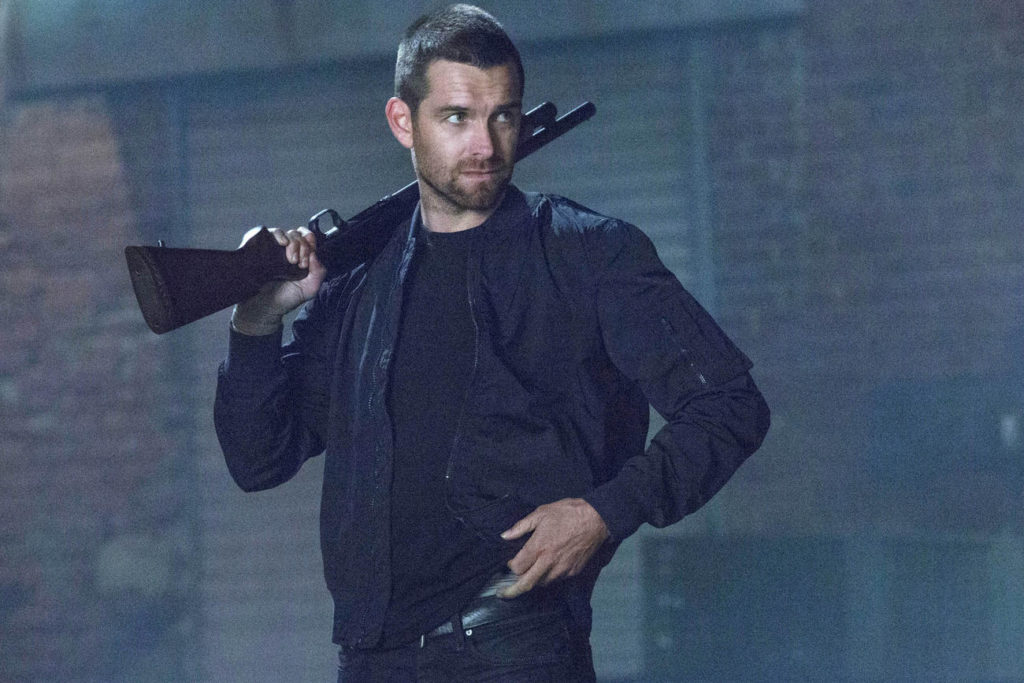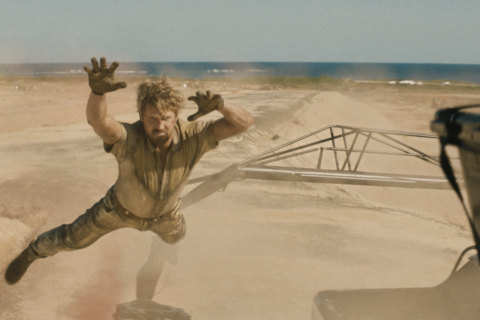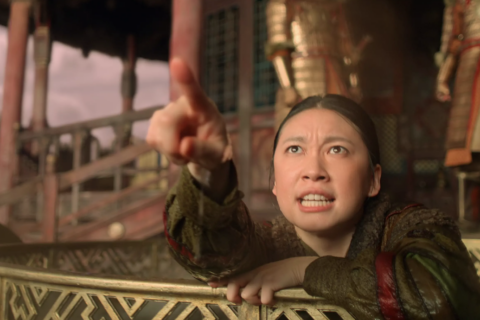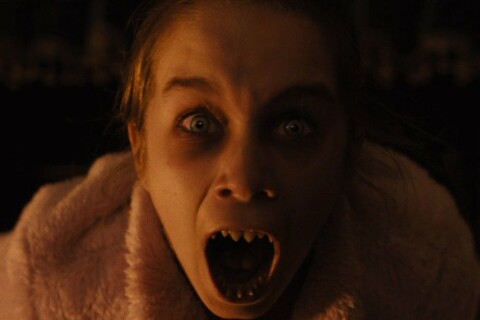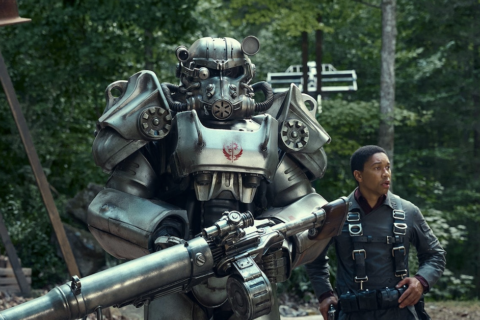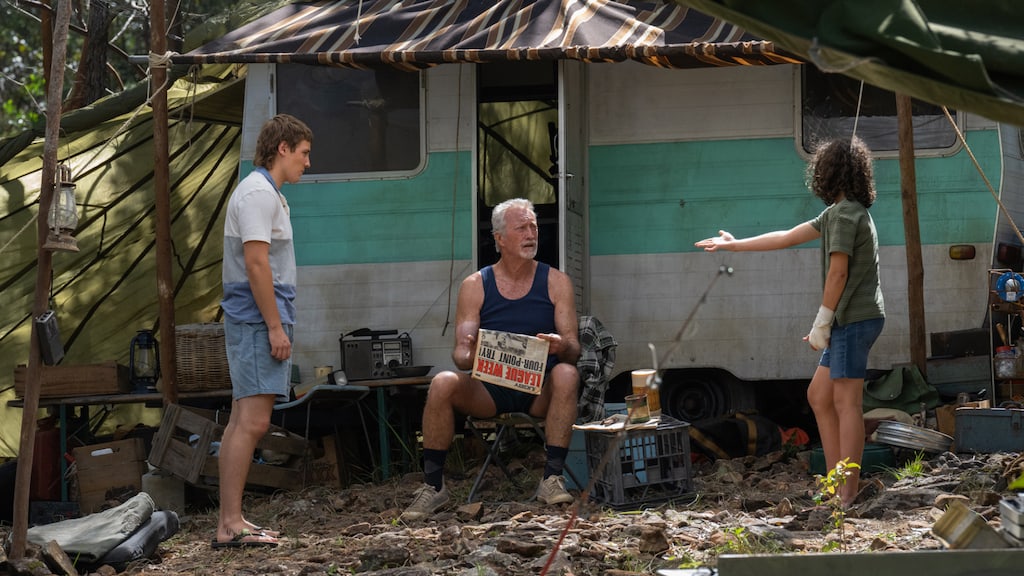Witchdoctor Rating
-
- 6/106/10
Summary
Genre: Drama/Thriller
ANDREW JOHNSTON assesses the latest televisual film noir, and Hugh Laurie’s part in it, and as a bonus, gives us a primer on the genre, and filmic recommendations.
Capsule Review: Hugh Laurie plays Eldon Chance, a medical specialist with problems. Yes, you heard right, but to everyone’s relief Chance is not House. This is something else altogether: an ambitious attempt at noir based on one of the great classics of the genre, Alfred Hitchcock’s Vertigo. This tale of a dupe being pulled into a conspiracy by a femme-fatal should work but doesn’t quite do so. It feels like it was rushed into production before the structure and layout was properly defined, but don’t let that put you off because there’s a lot of good at play here as well. Let’s hope they get it a better handle on it in Season Two, because this series could be great. As for Laurie, he’s reliably better than the material he’s driving.
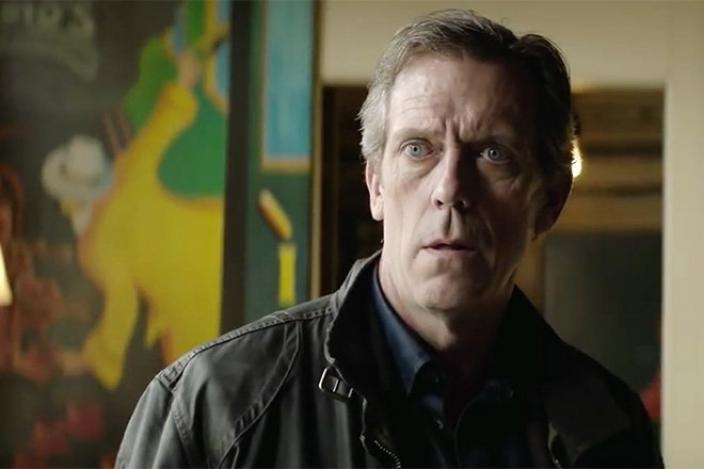 Hugh Laurie picked up the acting bug at Cambridge University after a bout of illness laid to rest his successful rowing career. After a turn as an actor for hire he was cast in the second series of Blackadder, written by former Cambridge alumni Ben Elton, and spent the rest of the 1980s taking on various roles through five seasons of this seven series phenomenon.
Hugh Laurie picked up the acting bug at Cambridge University after a bout of illness laid to rest his successful rowing career. After a turn as an actor for hire he was cast in the second series of Blackadder, written by former Cambridge alumni Ben Elton, and spent the rest of the 1980s taking on various roles through five seasons of this seven series phenomenon.
When Blackadder came to the end of its run he teamed up with former classmate Stephen Fry and the results were sensational, with satirical comedy show A Bit Of Fry And Laurie and sitcom Jeeves And Wooster both becoming substantial hits.
In 2004 he was in Namibia working on the remake of the 1965 Robert Aldrich action film Flight Of The Phoenix when his agent landed him an audition for the lead part in an upcoming American TV show about a misanthropic medical genius with a drug problem. The audition tape was hastily put together in the bathroom of the hotel (“The only suitably lit place I could find”) and the rest is history.
House hit the airwaves in 2004 and by the time they wrapped it up in 2012 the show was about the biggest thing on TV, and he was a huge star. Since then roles have included a sideline as a bluesman (records and tours), a couple of movies including New Zealand film Mr Pip (adapted from the Lloyd Jones novel) and a central role as the bad guy in the big budget mini-series The Night Manager.
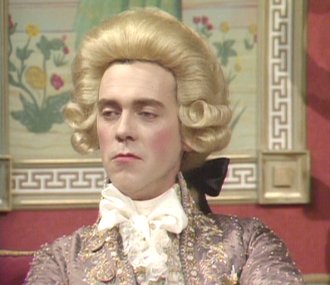
I loved House. He was a thrilling multi-layered creation and I was excited when I heard that Laurie had been cast as the villain in a production being helmed by one of my favourite contemporary film directors, Susanne Bier. At first I was ambivalent about his portrayal of malevolent arms dealer Richard Onslow Roper, but this was a subtle performance that grew as the episodes wound on, and in the end it became clear that his performance was masterful.
No clichéd bad guy shenanigans here: he was a proper a sociopath armed with a shrewd manipulative technique and an ever-prescient threat of violence wrapped in charm and intelligent guile. With this in mind I approached Laurie’s latest TV adventure with high expectations tinged with a little trepidation. According to the blurb, Eldon Chance is a high achieving medical specialist with deep-seated emotional problems. Surely not!
https://www.youtube.com/watch?v=TIPRjWN8hcg
Chance is a forensic psychiatrist dealing with a recent divorce and the ensuing financial problems. Otherwise, he’s a devoted father who is hiding a deep-seated emotional vulnerability manifesting as a propensity for obsessive behaviour, so when beautiful femme-fatal Jaclyn Blackstone (an excellent turn by Gretchen Mol) walks through his door seeking council, he knows better than anyone the dangers involved.
Despite the alarm bells he is drawn inexorably into her shadow world and before he knows it he is in neck deep and out of his depth. The problem is only compounded when he meets Darius, a ‘fix it guy’ who offers to help him out. What at first seems like a good deal becomes a world of trouble all its own when Darius turns out to be delusional.
The first problem with Chance is that it feels like it was rushed into production without anyone involved having a properly defined vision of what it was they were trying to achieve. The first two episodes begin by offering an especially delightful sequence narrated by Chance detailing the kinds of psychiatric problems he deals with, but by episode three this has been replaced with the more typical episode recap. It’s less delightful but more suitable, because this is not an episodic show with a story arc, it is a story arc.
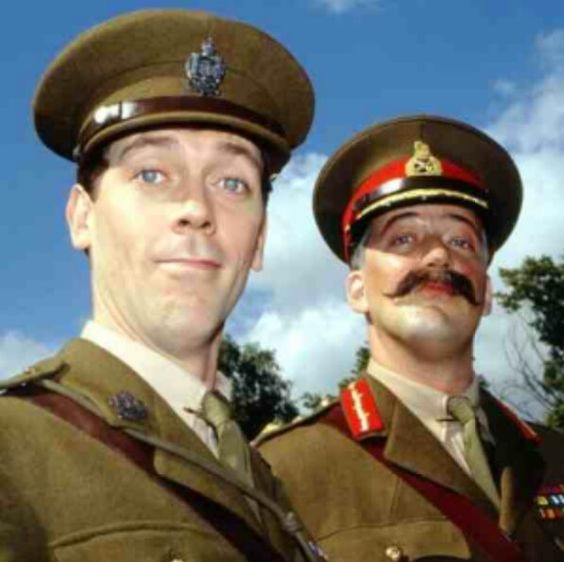
Film noir is American genre born out of the frustrations faced by disenfranchised servicemen returning to mundane civilian life after the white-hot heat of World War Two. At first it was exclusively a Los Angeles phenomenon, but quickly spread to other regional filmmaking centres where its tone was adapted to suit local sensibilities. The basic premise of film noir includes a strong and morally ambivalent female protagonist (femme fatal) and a male dupe who she uses to fulfil nefarious ends.
Chance is set in San Francisco where in 1958 directing legend Alfred Hitchcock made a film called Vertigo. If it wasn’t the first San Franciscan film noir it was certainly the defining one. Dupe (played by James Stewart) becomes obsessed with a woman (Kim Novak) who is involved in a scheme hatched by her lover to conceal the impending murder of his wife. She has money and they want it and each other, and the James Stewart character, an emotionally damaged former police detective, is the ‘mark’ their plan pivots on.
It is a brooding and psychologically intense production made even more powerful by composer Bernard Hermann’s atmospheric score. The comparisons between Chance and Vertigo soon become evident – especially so when the good doctor is flung off a cliff toward season’s end (this is not a spoiler), giving us an exact replica of a twice-visited set piece from Hitchcock’s masterpiece. Is Chance a homage to Vertigo? Indeed it is, right from the damaged characters through the musical score and views of San Francisco – including the same perspectives on the Golden Gate Bridge.
It should work, except for that previously mentioned problem: it feels rushed, and the execution leaves a lot to be desired. Ethan Suplee as Darius the ‘Fix it man’ is unconvincing, as is the doctor’s transformation from good guy to retributive and violent defender of Jaclyn’s honour. She herself is a pivotal character whose motives are never really made clear. Was she really a victim or was she manipulating Chance? The final episode should have cleared this all up but is a muddle that limps to a halt in a convulsion of lost opportunity that only adds to an overall impression that a committee was refining details as the camera was rolling.
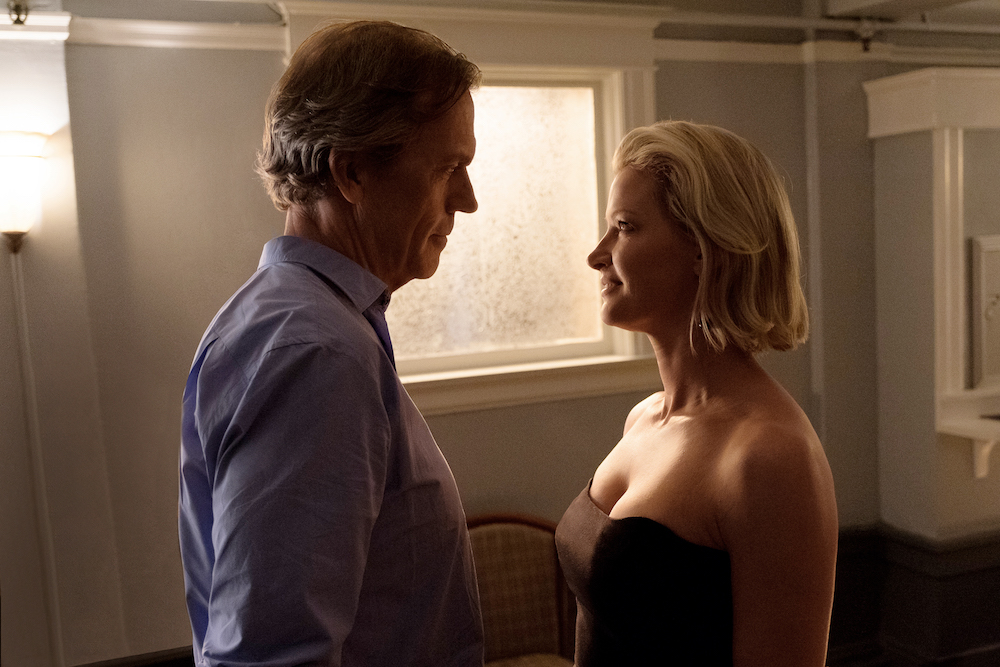
All that aside, Chance is mostly enjoyable, and each new episode was greeted with mounting excitement, especially as it drew closer toward the climax and where there were some genuinely tense narrative threads in play; especially those involving Jaclyn’s corrupt cop husband Raymond (played by a suitably a menacing Paul Adelstein). Let’s hope they get a better handle on it in Season Two, because this series could still be great. As for Laurie, he’s reliably better than the material he’s driving. ANDREW JOHNSTONE
* Chance is currently streaming on Lightbox.
Some Recommended Film Noir:
The Hollywood noir canon is vast but some of the examples worth checking out include:
The Maltese Falcon (1941)
Double Indemnity (1945)
Out Of The Past (1947)
Stray Dog (1949)
Gun Crazy (1950)
In A Lonely Place (1950)
Kiss Me Deadly (1955)
The Sweet Smell Of Success (1957)
Touch Of Evil (1958)
The Bad Sleep Well (1960)
Chinatown (1974)
LA Confidential (1997)
Mulholland Drive (2001)
The French took to film noir like ducks to water, creating some of the great masterpieces of the genre in the process. The best of them include Bob The Gambler (1955) and Rififi (1955). French film noir morphed into the French New Wave, a stylised film genre that went back to Hollywood and kicked it in the balls.
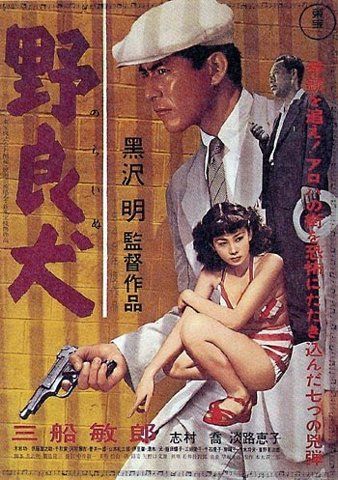
The great Japanese Director Akira Kurosawa tried his hand and the results include the riveting detective potboiler Stray Dog. Filmed under the dripping heat of a Tokyo summer, the film follows a rookie detective on a frantic search for his stolen gun while casting an eye about on a city under American occupation; a city filled desperate and hungry people living in squalid ruins. For this view alone, the film is worth two hours of your time. His other notable noir is The Bad Sleep Well, a visceral expose of corporate corruption and hearts turned black by greed.
The greatest British film noir is Carol Reed’s 1949 epic The Third Man. Set in post-WW2 Berlin and featuring the iconic figure of Orson Welles, this expertly choreographed production sets its eye upon this ruined city and the amorality of those out to make a buck from a desperate situation. Welles’ own Touch Of Evil (1958) was to be simply a budget B-movie he was doing for the money, but he took one look at the script and decided a rewrite was the least it required. The result is a masterpiece that includes what was then the most technically ambitious opening sequence ever attempted.
Roman Polanski’s Chinatown (1974) features Jack Nicholson as a private eye drawn into a dark conspiracy by a femme fatale who is manipulating him for reasons he is determined to understand, despite his better instincts. With its themes of political corruption and amoral ambition this is the consummate LA noir, and is the spiritual godfather of all the noir that followed.
Recommended Televisual Noir:
True Detective (Season Two) (2015):
A homage to Polanski’s triumphant Chinatown, the much underrated second season of True Detective is a tour de force that demonstrates what a powerful medium film noir can be for exploring the dark recesses of the human psyche. 9/10
Goliath (2016): More LA noir, this time featuring an on-form Billy Bob Thornton as former legal star down on his luck who is drawn into a case against his former firm and law partner Donald Cooperman – a madman of biblical proportions played with visceral delight by John Hurt. An exploration of the corrupting ability of wealth and power, Goliath is almost perfect. 8/10
* The internet and ‘TV on Demand’ has revolutionised the way we watch TV shows. No longer beholden to television networks and their programming whims and scheduling, we can watch back-to-back episodes of new and old shows to our heart’s content without those annoying advertisements interrupting the narrative flow. TV viewing has suddenly become more accessible, democratic and a hell of a lot more fun. ANDREW JOHNSTONE scours the available channels and finds the best of the best, so you don’t have to.



